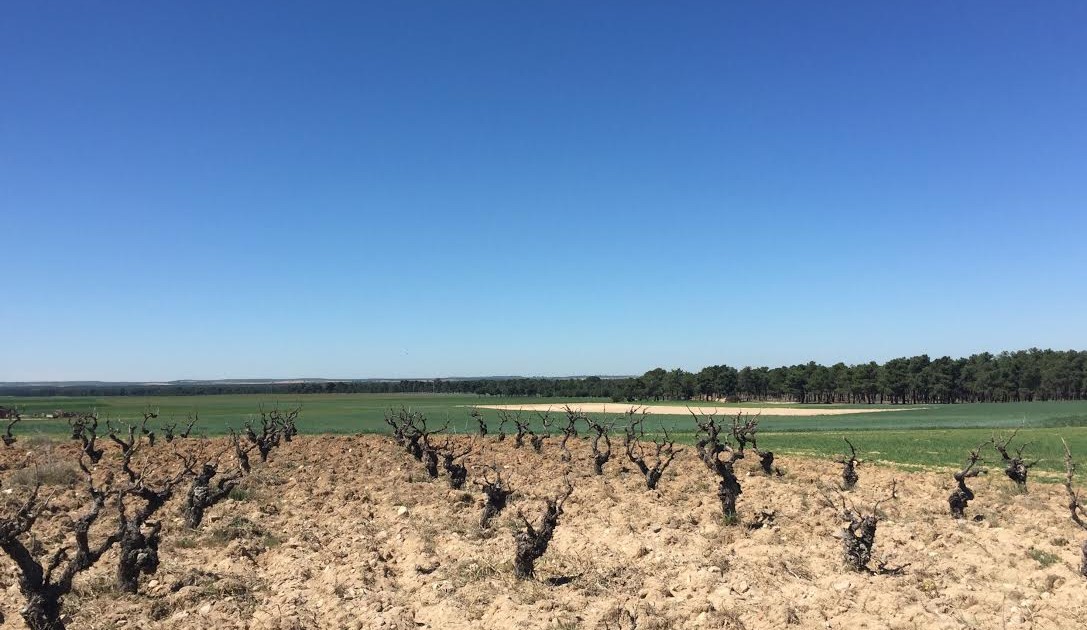Pascua in the Pueblo
As a Jew, Easter for me usually means stocking up on jellybeans and peeps at the least, and being invited to dinner at my Gentile friends’ houses if I’m lucky.
Spending “Pascua” (Easter) in Spain is a different story. The majority of Spain’s population is Catholic, and everyone goes on vacation the entire week leading up to Easter, known as “Semana Santa,” if not the week after as well. For study abroad students, “Semana Santa” is synonymous to Spring Break in Cabo San Lucas. (Mine could not be further from Cabo – I spent the week exploring and hiking through Norway and Denmark in 30-40˚F through rain, snow and hail.)
Nevertheless, upon my return to Madrid the Friday before Easter, my host mom invited me to spend Easter with her family in her “pueblo,” or small town, on the outskirts of Segovia. I had heard a lot about her “pueblo,” but I had yet to see it for myself. With not much else to do for the weekend, knowing many stores and restaurants would be closed, I agreed and figured it would be a good exercise of my Spanish skills at the very least.
A short hour later, we arrived in Melque de Cercos: Population 108. The town literally popped up out of acres and acres of farmland and nothingness. If I hadn’t been awake for the majority of the car ride, I would have thought we were hours outside Madrid based on how desolate the area was.
Rosario’s home in Melque has been in her family for generations, and I could quickly tell it’s something she takes a lot of pride in. After a tour of the house, Rosario’s son Fernando invited me to go for tapas with his girlfriend and his friends from the town. Fernando, who now has a son of his own that he brings to Melque, spent all his weekends, vacations and summers in the town as a child, so he’s known his friends from Melque practically all his life.
Despite my feeling like a little bit of an outsider, his friends welcomed me warmly and one even corrected me for referring to him in the informal sense, scolding me after I called him “usted”, the formal form of “you” instead of “tú” which is reserved for family and friends.
Over the next three hours we went to four different restaurants. The whole evening was very typically Spaniard: people argued over who was going to pay the check, debated over which restaurant served the best tapas and contemplated where to go next. Going for tapas in Spain is quite the event. It’s more like bar hopping for food rather than just sharing small plates at a trendy restaurant like in the United States.
After dinner, we went back to the house for a little while to relax and watch TV. When we were flipping through the channels, Fernando stopped to watch a mass that was being broadcasted. He asked if I was Catholic and if I was going to come to mass with them the next day. When I told him I was Jewish, he seemed surprised but intrigued. He and his girlfriend proceeded to ask me a number of questions about Judaism, as he hadn’t met more than a handful of Jews in his entire life. When Rosario realized I was Jewish earlier in the semester, she was equally as surprised. She told me that I was the first Jewish student that stayed in her house after almost 10 years of hosting foreign students. She welcomed the difference, quickly telling me that she was accepting of all religions, which I thought was a nice gesture.
Around midnight, Fernando invited me to go for coffee with him and his friends in the main plaza. I tagged along, but quickly realized they were going out for the night rather than just having a cup of coffee.
I literally could not hang….with four 30-something-year old Spaniards. Sounds lame, I know, but I lasted for about two hours in the loud bar, trying to follow the rapid conversation in Spanish while succeeding in only understanding every fourth word. By about 2:30 a.m., when it was clear they were going to order another round of drinks, I decided it was time for me to go home. Much to my surprise, my 75 plus-year-old host parents and Ulysses, their 9-year-old grandson (Fernando’s son), were still awake as well. Ulysses had even been playing in the street with his friends until nearly 2 a.m. It is becoming easier for me to understand how Spaniards are so accustomed to staying out partying until 7 a.m. Their all-nighter attitude is groomed from a young age.
We all woke up late the next morning, and relaxed until lunch. Fernando showed me the fields behind the town where his family has had a wine vineyard for generations, and I helped Rosario make lunch after she got home from mass. After a long, traditional Spanish lunch it was time for a “siesta,” and I, along with the rest of the small, sleepy town slipped into a post-Pascua food coma.


